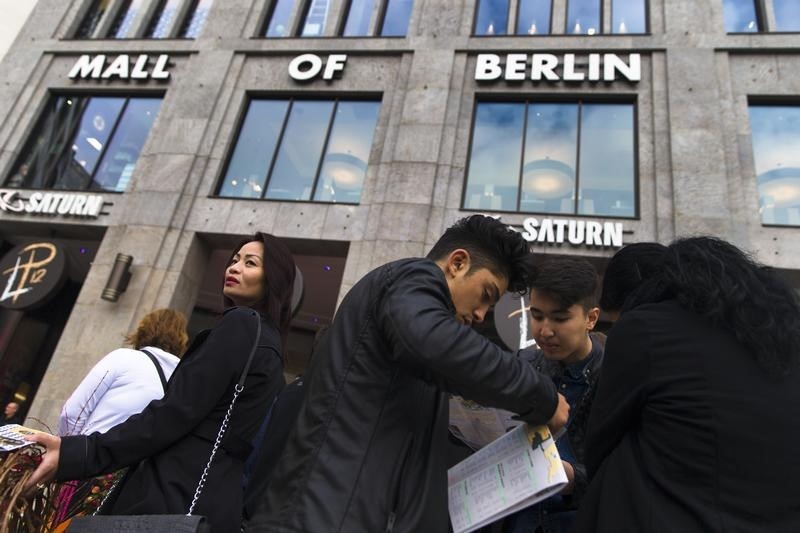By Michael Nienaber
BERLIN (Reuters) - German consumer inflation probably slowed more than expected in May, falling below the European Central Bank's target of just under 2 percent, regional data suggested on Tuesday, taking some pressure off the ECB to wind down its monetary stimulus soon.
The surprisingly weak figures from several German states hinted that price pressures in Europe's biggest economy remain relatively modest despite its continued upswing, booming labour market and the ECB's loose monetary policy.
The German data follows Spanish price figures that showed inflation in the euro zone's fourth biggest economy also eased in May. Spanish consumer prices rose by 2.0 percent on the year, their slowest rate since December, preliminary data from the National Statistics Institute (INE) showed.
In Germany's most populous state, North Rhine-Westphalia, annual inflation slowed to 1.6 percent from 2.1 percent in April. It also fell back to 1.6 percent in Saxony. In Bavaria and Brandenburg, it dropped to 1.4 percent, while it slowed to 1.5 percent in Baden-Wuerttemberg and to 1.7 percent in Hesse.
While food costs rose more sharply, energy inflation slowed given the fall in oil prices, the data showed. Prices for leisure and package holidays also rose less sharply, as special factors related to the Easter holidays in April were reversed in May.
The state readings, which are not harmonised to compare with other euro zone countries, will feed into nationwide inflation data due at 1200 GMT.
A Reuters poll conducted before the release of the regional data suggested overall consumer price inflation fell to 1.6 percent in May from 2.0 percent in April.
Capital Economics analyst Jessica Hinds said the state readings suggested that German inflation fell by a little more than expected in May to some 1.5 percent. She added that underlying price pressures would remain very subdued.
"And with core inflation much lower elsewhere in the euro zone, we doubt that ECB interest rate hikes will come before 2019," Hinds added.
The inflation rate for the entire euro zone, due on Wednesday, is expected to have fallen to 1.5 percent in May from 1.9 percent in April, economists polled by Reuters said.
With euro zone growth on its best run since the bloc's crisis a decade ago, pressure has been mounting on the ECB to start planning an exit from its policy of aggressive bond purchases and sub-zero rates.
However, ECB President Mario Draghi said on Monday that euro zone growth may be improving but inflation remained subdued and still required substantial stimulus, tempering expectations for the central bank's June 8 policy meeting.
